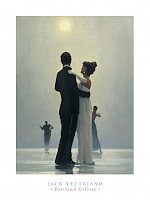Human by Utah's own Brandon Flowers (The Killers)
Tomorrow will BUILD upon today and contrast "Mr. Roboto" by Styx. Come see how. :) Both are characterization, tone, and symbolism. Isn't music wonderful? It's so much like literature!
Announcements
Thursday, September 29, 2011
Antagonist
The person or thing that works against the protagonist.
Protagonist
The central or primary character in a story. The main character or narrator.
Nemesis can be a thing. It can be something you can NOT defeat. Archenemies are also nemeses. Black/white. Very good vs. evil. These are not defeat-able.
The person or thing that works against the protagonist.
Protagonist
The central or primary character in a story. The main character or narrator.
Nemesis can be a thing. It can be something you can NOT defeat. Archenemies are also nemeses. Black/white. Very good vs. evil. These are not defeat-able.
Tuesday, September 27, 2011
Characterization
Today in class, we discussed round and flat characters. You should have taken notes directly from the board.
Round characters are more complex than flat characters. They are also known as "dynamic" characters. Whilst not necessarily FAT, they are full, and they have both good and bad characteristics. They have personality, and they are well drawn. They change and they are affected by their situations and their surroundings. They become new people based on what happens to them in the book, and we (the reader) are better from having interacted with them. "A round character is capable of contradiction and change with evidence of emotional and psychological development."
Flat Characters are static. They don't change or deviate much. This is OK sometimes when we need a loyal side-kick or a villain who is a bad, bad man (a stock, stereotypical character). However, sketched in characters who are only simply half drawn are not desirable main characters. The example we used in class was Hermione and Scar.
Round characters are more complex than flat characters. They are also known as "dynamic" characters. Whilst not necessarily FAT, they are full, and they have both good and bad characteristics. They have personality, and they are well drawn. They change and they are affected by their situations and their surroundings. They become new people based on what happens to them in the book, and we (the reader) are better from having interacted with them. "A round character is capable of contradiction and change with evidence of emotional and psychological development."
Flat Characters are static. They don't change or deviate much. This is OK sometimes when we need a loyal side-kick or a villain who is a bad, bad man (a stock, stereotypical character). However, sketched in characters who are only simply half drawn are not desirable main characters. The example we used in class was Hermione and Scar.
FLEX today: Nothing Gold Can Stay (Nostalgia)
Today for Flex the lesson is a continuation of the tone/mood/setting of nostalgia. The lesson is a comparison contrast of "Nothing Gold Can Stay" and discussing fall as a setting. The lesson plan is here. It uses Paul Simon's "Leaves that are Green" and The Mama's and the Papa's "California Dreamin'" and discusses mood/tone of nostalgia as a setting technique.
Saturday, September 24, 2011
Chronology & Setting Notes
 Chronology is the science of arranging events in their order of occurrence in time, such as the use of a timeline or sequence of events. It uses actual CLOCK time (minutes, seconds).
Chronology is the science of arranging events in their order of occurrence in time, such as the use of a timeline or sequence of events. It uses actual CLOCK time (minutes, seconds). Literature uses flashbacks, in media res, Twitter, Facebook, and resumes use REVERSE chronological order.
Setting includes the time, location, and everything in which a story takes place.
Friday, September 23, 2011
Setting
What is setting? This is in every book ever.
How is nature treated in your book? (Think about it a bit). This is the book you are reading.
How does Puff the Magic Dragon react in the book (the setting changes--think of the pictures).
Why does setting *matter*? How does it affect a book?
Is setting just the place? Yes? No, then what else?
What is chronological order?
How is nature treated in your book? (Think about it a bit). This is the book you are reading.
How does Puff the Magic Dragon react in the book (the setting changes--think of the pictures).
Why does setting *matter*? How does it affect a book?
Is setting just the place? Yes? No, then what else?
What is chronological order?
Thursday, September 22, 2011
Golden Passages & Galileo
 Today, we talked about your golden passages. We reviewed MLA style, your golden passage (in Schaffer style) and then you have one day to make them *perfect*.
Today, we talked about your golden passages. We reviewed MLA style, your golden passage (in Schaffer style) and then you have one day to make them *perfect*.Then we talked about Galileo Gallilei and the Allegory of the Cave.
What is a "Golden Passage" exactly? A great quote, supported with 2 pieces of commentary.
Wednesday, September 21, 2011
Calendar:
- Parent/Teacher Conference
- Chronological order (things going in the order they happen-- TIME)
- Chunking
- MIDTERM IS NEXT TIME
If You Give a Pig a Pancake by Laura Numeroff used to teach chronological order.
Ritz Cracker CHUNKS
Tuesday, September 20, 2011
Metacognition for Allegory of the Cave
 What did you learn from this activity?
What did you learn from this activity?Which translation did you find most helpful? Why?
What was the most complete translation?
What was Plato's message?
Do you agree or disagree?
Who's poster did you like best? WHY?
How is "allegory" about just "the tip of the iceberg" of learning?
Write about your group. What were the challenges of your group? What was the benefit of working with your group? Who was most helpful in your group? Was there anyone not helpful?
Reading quickly?
If you are wondering how many days there are left, you have until October 10th-11th to finish reading your book. You can start looking ahead at the book report HERE: https://sites.google.com/site/jillianphippen/reading-unit/book-report-page
Monday, September 19, 2011
News of the Week
Quiz/test today. Worth 50 points!!
I do NOT give RETAKES.
Mrs. Phippen, why did you FLEX me?
I graded *everything* I had. Hopefully, you turned in everything you did, and you are NOT coming to Flex unless you WANT to. This week for Flex, we are doing:
 Today we did chunking/facts v opinions. We'll be writing paragraphs next time.
Today we did chunking/facts v opinions. We'll be writing paragraphs next time.
I do NOT give RETAKES.
Mrs. Phippen, why did you FLEX me?
I graded *everything* I had. Hopefully, you turned in everything you did, and you are NOT coming to Flex unless you WANT to. This week for Flex, we are doing:
- Tuesday Alice in Wonderland meets Adam Lambert (Existential questioning)
- Wednesday "Tonight, Tonight" by Hot Chelle Rae (poetry's repetition/anaphora)
- Thursday "100 Years" by Five for Fighting (magic numbers)
- Friday "The Boys of Fall" by Kenny Chesney
 Today we did chunking/facts v opinions. We'll be writing paragraphs next time.
Today we did chunking/facts v opinions. We'll be writing paragraphs next time.
Friday, September 16, 2011
Existential Questions
 Here's a sample of the Flex coming up on Tuesday flex. It's based on forming existential questions (we covered this on the first day of class. See the lesson here). We also discussed asking good questions when writing thought exercises.
Here's a sample of the Flex coming up on Tuesday flex. It's based on forming existential questions (we covered this on the first day of class. See the lesson here). We also discussed asking good questions when writing thought exercises.Here's the link to the Existential Alice in Wonderland type experience in Adam Lambert's "If I had You" we'll discuss.
Rubric for Grading the Allegory of the Cave Poster
- Does it have an image of the cave?
- Does it answer all the questions?
- Does it make logical sense?
- Did they describe the speaker, listener, and author?
- Did it describe the point of the lesson?
- Is it thorough, honors level work?
Thursday, September 15, 2011
What's the Drama?
Today we covered ALL the notes in the Genre Flip Book. You need to review them! There will be a BIG quiz on them on Monday (A day) or Tuesday (B day).
 Today, we went into the writing lab. We covered MLA style. The style guide is located HERE.
Today, we went into the writing lab. We covered MLA style. The style guide is located HERE.
You should have created an MLA Template and saved/sent it to yourself in the writing lab.

Then, we went over the drama/historical fiction notes!
See you next time! Don't forget to study!
 Today, we went into the writing lab. We covered MLA style. The style guide is located HERE.
Today, we went into the writing lab. We covered MLA style. The style guide is located HERE.You should have created an MLA Template and saved/sent it to yourself in the writing lab.

Then, we went over the drama/historical fiction notes!
See you next time! Don't forget to study!
Flex, Someday (Nickelback)
Nickelback Flex Link
You need a piece of paper. Put your NAME on it.
Put your CLASS PERIOD on it.
You need to put the QUESTIONS on it.
You need a piece of paper. Put your NAME on it.
Put your CLASS PERIOD on it.
You need to put the QUESTIONS on it.
Wednesday, September 14, 2011
First day of FLEX!
What are we doing for FLEX today Mrs. Phippen??
Come in and SIT DOWN.
I will pass around a roll!
link here
Come in and SIT DOWN.
I will pass around a roll!
link here
Honors English Wednesday
Today we read "Allegory of the Cave" in groups. The point of this activity was to study the value of differing translations. In preparation, we had quick write where we looked at learning resistances (see prompt below). We also looked at the Allegory of the Cave questions (see this link).
When Learning is *HARD*
 People generally resist trying to learn new things. Why is that? Why do we struggle with what is hard? What is your learning process when you are learning something new or hard? What is the hardest thing you have ever had to learn or study? When was it? Did you embrace it, or did you struggle against it?
People generally resist trying to learn new things. Why is that? Why do we struggle with what is hard? What is your learning process when you are learning something new or hard? What is the hardest thing you have ever had to learn or study? When was it? Did you embrace it, or did you struggle against it?When I was 7 years old my mother decided I was going to be a concert pianist. She decided it was time for me to take piano lessons. At first, it was grand fun. She signed me up for piano lessons... and I took piano lessons for 12 years. Not all of those years were fun. In fact, only about the first year was fun.
I took piano from "Sister Hoen" up the street for the first 5 years, and when I was 14, I graduated to Barbara Ellison, of the amazingly resilient Fortrel suits, for the rest of my career. When I was 16, I traded the piano concerto training in on piano teaching training (as long as I promised I wouldn't date "that boy, which wasn't much of a trade, as "that boy" had off-loaded me *sob*).
The hardest thing I ever had to learn was that my mother had truly wasted her dream. I was never going to BE a concert pianist. I wasn't much of a pianist. I was musical, and I had talent, but I didn't share in her dream. That's the real problem. I hadn't embraced the dream with her. Sadly.
Monday, September 12, 2011
Book Jacket Discovery
Today you should get the new calendar (scroll down) to see it.
 You should then look at the genre notes for fantasy and romance notes. We will have a "Quest" (big quiz-cross between a quiz and test) on 9/19 that covers all of the notes we've taken.
You should then look at the genre notes for fantasy and romance notes. We will have a "Quest" (big quiz-cross between a quiz and test) on 9/19 that covers all of the notes we've taken.

You have a Book Jacket Discovery Writing Prompt
3 Paragraphs answering the following
¶ About Jacket Art
Describe the jacket art. Who drew it and are there any symbols or objects that might be important in the book? Does the jacket art feature any characters? What do they look like? Describe in detail: age, height, weight, gender, lifestyle, etc. Who was the cover meant to attract? Why?
¶ About Author Information
Who wrote your book and where does it appear on the front cover? What else does the book say about them? What type (genre) does the author normally write? Where does the author live? How old is your author (when was he/she born)? What issues does your author think is important? (What is your author’s bias?)
¶ Copyright Information
When was your book written? Where was it published? Do you have a second or third publishing? What does this tell you about your book?
 You should then look at the genre notes for fantasy and romance notes. We will have a "Quest" (big quiz-cross between a quiz and test) on 9/19 that covers all of the notes we've taken.
You should then look at the genre notes for fantasy and romance notes. We will have a "Quest" (big quiz-cross between a quiz and test) on 9/19 that covers all of the notes we've taken.
You have a Book Jacket Discovery Writing Prompt
3 Paragraphs answering the following
¶ About Jacket Art
Describe the jacket art. Who drew it and are there any symbols or objects that might be important in the book? Does the jacket art feature any characters? What do they look like? Describe in detail: age, height, weight, gender, lifestyle, etc. Who was the cover meant to attract? Why?
¶ About Author Information
Who wrote your book and where does it appear on the front cover? What else does the book say about them? What type (genre) does the author normally write? Where does the author live? How old is your author (when was he/she born)? What issues does your author think is important? (What is your author’s bias?)
¶ Copyright Information
When was your book written? Where was it published? Do you have a second or third publishing? What does this tell you about your book?
Friday, September 9, 2011
Your book, It's a Little Book, Mysteries
What is the TITLE? Who is the AUTHOR?
Why did you choose you book?
How do you KNOW you are the intended audience?
How do you know this is the right reading level?
DUE NEXT TIME
Then, we read It's a LITTLE book.
 We discussed AUDIENCE and TONE. We reviewed why the tone and audience was clearly different in this version of It's a Book.
We discussed AUDIENCE and TONE. We reviewed why the tone and audience was clearly different in this version of It's a Book.
Then we discussed MYSTERIES. Link HERE (scroll to the bottom). If you need more genre notes you can download them at the same link. :)
Then, we read It's a LITTLE book.
Then we discussed MYSTERIES. Link HERE (scroll to the bottom). If you need more genre notes you can download them at the same link. :)
Pep Rally day! Homecoming! Carnival at 3pm. Game at 7pm!
Thursday, September 8, 2011
Today we are going to the library. There, we're going to have orientation. The main purpose is to show you the newest databases of this particular library. The online database link is here (to the library calalog). The Pioneer link is here.
Honors classes will also work on a THOUGHT EXERCISE. Your first Thought Exercise will be DUE on Monday in the Schaffer style. Here is a sample. You must be using MLA style. We set up your paper in the style. Please use this style guide all year long.
Tuesday, September 6, 2011
An Honors Tuesday--Talking Chunking

Your OUTSIDE READING BOOK is due TODAY!!
We're going to do a chunking activity today using Ritz Crackers.
 On your own triangle document, you will choose only ONE fact to write about to develop into one perfect "chunk" which is the smallest formal piece of Schaffer writing. Facts, in Schaffer Writing are called Concrete Details. They are abbreviated CD.
On your own triangle document, you will choose only ONE fact to write about to develop into one perfect "chunk" which is the smallest formal piece of Schaffer writing. Facts, in Schaffer Writing are called Concrete Details. They are abbreviated CD.On the bottom you will include the opinion portions. These are the commentary abbreviated CM. Every fact has 2 commentary.
See this link.
Friday, September 2, 2011
TGIF! It's a LONG weekend!
QUIZ: What kinds of LIBRARIES are there? 4 questions from last time...
Remind them they NEED to choose a book... Due on FRIDAY, 9/9
Judging a book by it's cover... What's involved?
 Notes on genre: Genre discussion
Notes on genre: Genre discussion
What will we be doing NEXT TIME?? Chunking Fact vs Opinion (YOU WILL HAVE A T-Chart)
Remind them they NEED to choose a book... Due on FRIDAY, 9/9
Judging a book by it's cover... What's involved?
 Notes on genre: Genre discussion
Notes on genre: Genre discussionWhat will we be doing NEXT TIME?? Chunking Fact vs Opinion (YOU WILL HAVE A T-Chart)
Subscribe to:
Comments (Atom)



















